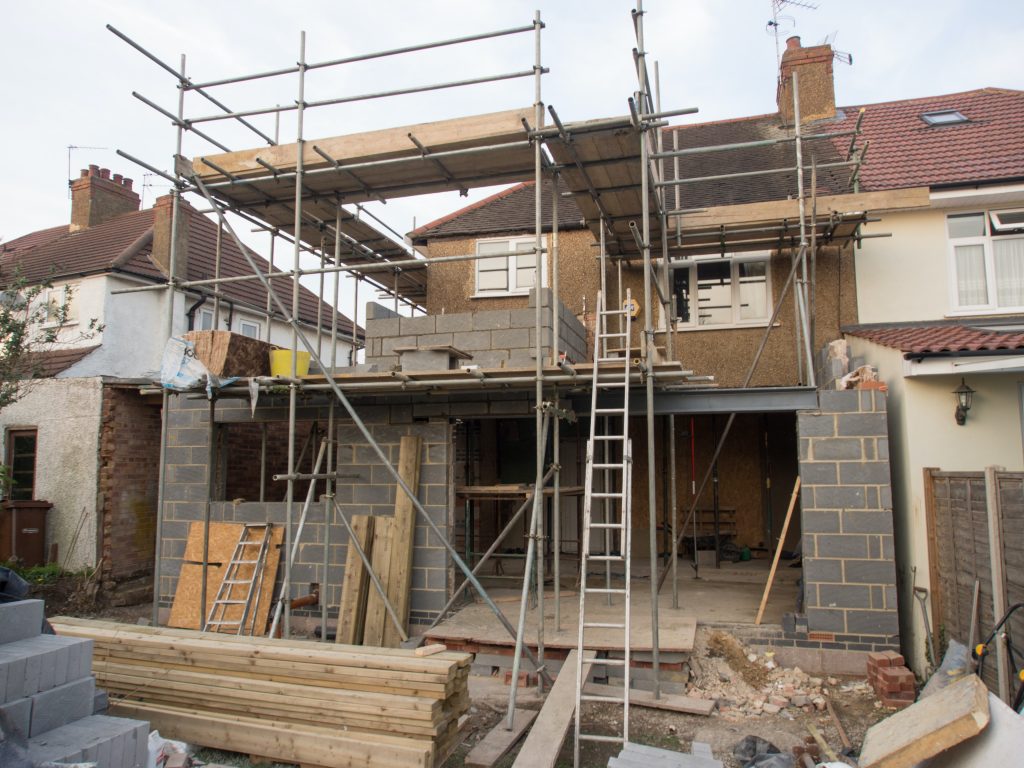Client’s vs Contractor’s Quantity Surveyor
The comparison between the client’s vs contractor’s quantity surveyor often pops up when career paths are being discussed. I believe you have visited this website because you are looking for the right information to help you understand the differences that exist between these two paths.
To begin with, it’s easy to say that the client’s quantity surveyor is called so because they work for the client. A client, in the construction industry, is a person who initiates a construction project. A client is the owner of the final product of the construction process (the building that is being constructed).
The term contractor’s quantity surveyor would refer to the quantity surveyor working for or employed by the contractor. A contractor is an individual or an organization that carries out actual construction work for payment by the client.
That’s the bottom line. However, to understand them better, let’s look at how a building gets built, the various roles played by the quantity surveyors and their educational backgrounds.
But first, we need to understand why people ask this question:
Client’s vs Contractor’s Quantity Surveyor: Why Do People Care?
Why is anyone interested in comparing the client’s quantity surveyor to the contractors’ quantity surveyor? Personally, I would say it’s because this comparison will allow them to make an important decision they are faced with. The reasons vary depending on who is asking the question.
If you are a human resource manager for a hiring agency, chances are you are not a professional quantity surveyor. That means the differences don’t come to you naturally out of the box. If a contractor firm and a consulting firm engages you to recruit for them, you will need to understand the key competencies that each firm is looking for in their potential hires.
That being said, you will need to understand the duties and responsibilities that the potential hire will perform in each workplace for you to evaluate them. It will be important for you to gauge their experiences and know the right interview questions to ask them.
As a recent graduate, you are probably interested in picking a career path that will work for you. That will, however, be tied to your short term and long term goals. Knowing the difference between working for a contractor and consulting firm will help you evaluate the career progression potentials in each vis a vis your short term and long term personal and professional goals.
However, that will be different from an experienced person. If I am looking at switching from either side of the matrix, my interest will be on how this is going to impact my day to day activities in the workplace. As we will see later in this article, the duties and responsibilities that you perform at work will drastically change if you switch from either the client’s side or the contractor’s side.
That’s enough of trying to figure out why the question is asked. Now, let’s get to know how a construction project gets built, including the roles played by the quantity surveyors.

How a Building Gets Built
Let’s assume a hypothetical character here called Alex. Alex is a businessman and wants to build a house in the leafy suburbs of Nairobi city in Kenya. He is the client in this case.
He will approach an architect for a design. He will explain to the architect the type of house he wants, the number of rooms, his budget, and where the site is located, among other things. These, the architect will take into account and produce a client’s brief which he will translate into a design. He will then advise his client to bring other consultants on board, including the various engineers and a quantity surveyor.
The quantity surveyor coming at this stage is a consulting QS who were are referring to as the client’s QS. The QS work at this stage will be to advise on the economics of the design, come up with cost estimates, and help the team select a suitable contractor through a process called tendering.
The contractor’s QS will come in at this stage. Their primary aim will be to advise the contractor on whether to bid for a given project and how to maximise profits if they win the tender.
After the selection of a suitable contractor, the actual construction work will begin. During the entire construction period, the contractor’s QS will be monitoring the site, while the client’s QS too will keep an eye on the project by doing contract administration. They will interact a lot until the project gets completed and Alex occupies his house.
The Client’s Quantity Surveyor
This term is used to describe a person who has been appointed by the client to offer professional quantity surveying services with regard to a specific construction project. It includes a freelance consulting QS, a consulting QS firm or a person employed in a consulting firm and those employed by government ministries.
Sometimes, the constituting quantity surveying firms are referenced as private practice.
They are said to be working on the consulting side of the project matrix; representing the client but also balancing the interests of both the client and the contractor.
Their main aim is to ensure that the client gets value for their invested money.
The following are some of the typical duties performed by the client’s quantity surveyor from inception, through the contract to the post-contract stages of the construction project:
- Preparing approximate cost estimates in the very early stages of the formulation of a building project, and giving advice on the alternative materials and components and types of construction and the financial aspects of contracts.
- Cost planning and value analysis during the design stage of a project to ensure that clients obtain the best value for their money. By use of life cycle costing techniques, the QS ensures realistic and uniform distribution of costs to the various building elements.
- Advising on the most appropriate form of building procurement, having regard to the type of the project, quality, speed of construction, apportionment of risk and price certainty.
- Preparation of bills of quantities and other contract documents relating to the project.
- Examining tenders and priced bills of quantities and reporting his findings.
- Negotiating rates with contractors on negotiated contracts and dealing with cost-reimbursement contracts, design and build, management and other forms of contracts.
- Valuing work in progress and making recommendations as to payments to be made to the contractor, including advising on the financial effect of the valuation.
- Preparing final account on completion of contract works.
- Advising on the financial and contractual aspects of the contractor’s claims.
- Giving cost advice and information at all stages of the contract and preparing cost analyses and cost reports to clients.
- Technical auditing, valuations for fire insurance, giving advice on funding, grants, capital allowances and taxation, risk analysis and management, and other related matters including health and safety and quality control.
The above functions have been adopted from the book: Building Quantities Explained, 5th Edition; written by Ivor. H. Seeley and Roger Winfield. You can grab a copy from Amazon online store.
The Contractor’s Quantity Surveyor
If you work on the contracting side of the project matrix, you will be referred to as a contractor’s quantity surveyor.
In this role, you might spend more of your time on-site monitoring one project, watching it grow and change every day. You could also be coordinating all the projects that are being built by the contractor who has employed you.
Whether coordinating one or more projects, your main role is to ensure that projects are done within budget and the contractor gets the maximum profits.
The specific duties of the contractor QS vary with the size of the company. Large firms usually have a dedicated quantity surveying and contracts department usually headed by a quantity surveyor. This QS is normally a company’s senior executive or may have director status.
With smaller companies that do not have a dedicated quantity surveying department, the QS will have a wide range of duties and responsibilities. They include the following:
- Preparing bills of quantities for small contracts.
- Agreeing on measurements with the client’s quantity surveyor.
- Collecting information about the cost of the various operations from which the contractor can prepare future estimates.
- Preparing precise details of the materials required for the projects in hand.
- Compiling target figures so that the operatives can be paid their bonuses.
- Preparing interim costings so that the financial position of the project can be ascertained as the work proceeds and appropriate action is taken where necessary.
- Planning contracts and preparing progress charts in conjunction with the general foreman/site manager.
- Making application to the architect for variation orders if the drawings or site instructions may vary the work.
- Agreeing on sub-contractors’ accounts.
- Placing subcontract orders and comparing the costs of the alternative methods of carrying out various operations so that the most economical procedure can be adopted.
- Advising on the implementation of contract conditions and different contractual methods.
In larger firms, the duties will be more specialised and specific.

Educational Background and Training
As it is with other professions, people wanting to become quantity surveyors are required to undergo rigorous training and education. The educational background for both the consulting QS and the contracting QS is the same.
In my country (Kenya), you will be required to have either a degree or a diploma from a recognised TVET(technical and vocational education and training) institution or an institution of higher learning.
While you can work for the contractor with either a degree or a diploma, to reach the professional level you have to pass a licensing examination administered by a licensing body in your country. This will allow you to work as a consultant where you can freelance or get into private practice with your own registered company.
In Kenya, the Board of Registration of Architects and Quantity Surveyors (abbreviated as BORAQS) regulates the quantity surveying practice. It is responsible for developing the professional curriculum, conducting training programs and examinations and subsequently registering qualified persons and firms.
Conclusion
The client’s and the contractor’s quantity surveyor are the same yet distinctively different titles. With both working in two different roles with different goals on the same project, they are concerned with the management of costs of a construction project.
If you are a recent graduate contemplating which job path would e the best for you, I would advise you to think about that in line with your long-term career goals.
Since most licensing boards require you to have worked for a specific period of time under a registered quantity surveyor, it would help if you went to private practice or a government ministry. You will be taught all the professional areas of the QS practice from inception to completion of the project.
However, I would advise students going for their industrial attachment to consider both options. If you are well versed with construction technology, site methodologies and techniques, a consulting firm would be the best fit for you. You will get to learn quantity take-off and office procedures.
If you are just beginning your career and you are not well versed with actual construction works, it would help if your first engagement is with a contractor. You can opt to stay on-site and work on one project from start to finish. This will help you appreciate construction technology, methodologies materials and techniques. Subsequently, it will ease your work when you start learning quantity take-off.
Those are just my personal opinions, but I have also done the research and most writers agree with me on that. Do you have a different opinion? Let me know in the comments section below.
Nzangi Muimi
I’m a Quantity Surveyor, Educator and the founder of QuantBuild Academy, the fastest-growing technology-focused YouTube channel online. I am passionate about construction information technology and the digitization of the construction industry.
Related Posts
1 Comment
Leave a Reply Cancel reply
Search
Popular Categories
- ARCHICAD Tutorials (4)
- Construction (16)
- Construction IT (12)
- Construction Law (4)
- Cost Management (14)
- Tutorials (5)






that was very informative. good work and thank you